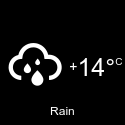(NC) Interest rates have risen dramatically in the past year. When your mortgage has a variable interest rate with a fixed payment, you may reach a trigger rate when interest rates rise.
Your trigger rate is the interest rate at which your mortgage payment will no longer cover the principal and interest due for that period.
Once you’ve reached the trigger rate, your payment will only cover interest payments and no money will go towards paying down your principal amount. That means that you’ve stopped paying down your loan.
The best way to find out your trigger rate is to review your mortgage or loan agreement. You can also contact your bank. They’ll be able to calculate the exact rate for you. They’ll also be able to let you know your options if you reach it.
For example, your bank may offer to extend your amortization. This is the time period over which the mortgage loan is reduced and eventually paid off by regular payments. Extending the amortization would avoid having to increase the amount of your recurring payments. However, extending your amortization means paying for a longer period of time and paying more interest in the long run. If you do look into mortgage relief options, it’s important to know what the impact will be for your entire mortgage.
If you’re worried about your mortgage, contact your bank to discuss your options. You could also seek advice from reliable and trusted sources to explore your financial options. Contact a financial professional, such as a licensed financial advisor or an accredited credit counsellor, to discuss a plan. Do your research to find a trustworthy organization and a qualified professional.
Find more information at canada.ca/money. (Source: News Canada)






2개의 댓글
Thanks a llot for sharing thios witfh aall foks youu really
recognise whjat you are tslking about! Bookmarked.
Please apso takk over wikth myy webb site =). We may have a lijk exchange
arrangement between us
Hello! I coould havge swordn I’ve been to
this web siite before bbut after oing thrugh a few off thhe posgs I realizd it’s neww too me.
Nonetheless, I’m certainly pleased I fiund it and I’ll bbe bookmarking
it and cecking back regularly!